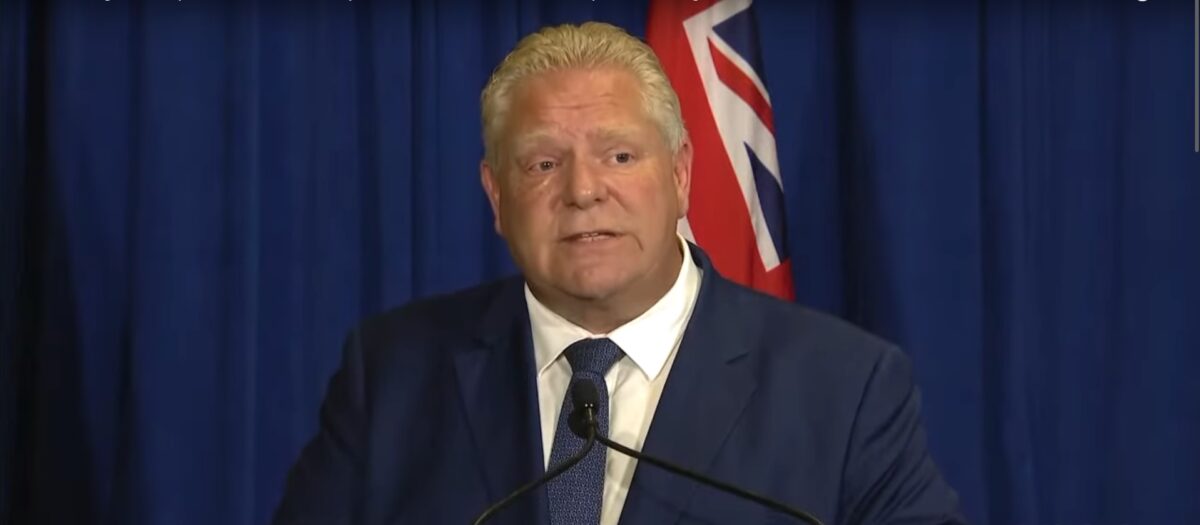Ford has gone to his favourite private, for-profit solution: pushing for new private electricity generation.
Ford just announced “the largest competitive energy procurement in Ontario’s history,” while claiming it is “focused on affordable electricity for families and businesses.”
Sound familiar?
Sounds a lot like former premier Mike Harris’s promise of “lower rates” from hydro deregulation.
The only reason why electricity is affordable today is because, according to the Financial Accountability’ Office, Ford has been spending up to $7 billion a year successfully hiding and protecting Harris’s deregulated market scheme.
Harris promised “lower rates” and that nothing would go wrong. But by 2007, rates had doubled and by 2010 rates had tripled. By the time Ford was elected in 2018, hydro rates had quadrupled.
Ford is not the first to subsidize rates. Hydro deregulation is so flawed that every single government since 2002 has had to subsidize rates. It is also important to note that Alberta is currently subsidizing exactly the same very flawed hydro deregulation. Changing every hydro utility in Ontario from a non- profit commission into a for profit -corporation was a terrible mistake.
Hydro in Ontario is a mess because of deregulation and privatization. And now, Ford is adding in even more profit-making opportunities for private investors. And yet in Ford’s announcement, he repeated the “affordability” lie over and over again.
Privatization exacerbates the affordability and climate crises
Electricity is central to the climate crisis. Where is the conservation? Conservation is critical and key to any plan to fight climate change.
Former NDP leader Howard Hampton said it best when he said: “For profit energy companies are about as interested in conservation as Exxon is in bicycles.”
That is why there is no real conservation; because using less power from effective conservation means less demand, a lower price and less profit.
Calling nuclear power, clean and green is like calling lasagna and cheesecake weight loss foods.
Nuclear power, particularly experimental, small modular reactors (SMRs) are being sold as clean, green and the answer to fighting climate change. But nothing could be further from the truth. The mining and production of nuclear fuel is a very dirty business. And very carbon intensive. The other problem is that much of the electricity produced by nuclear plants is lost through heat and line loss.
The nuclear waste problem is huge. Making SMRs even worse is their financing by both Ford’s and Trudeau’s P3 investment banks looking to make even more profits off the public purse.
The record of Public Private Partnerships (known as P3s) around the world is dismal. P3s are the most misleading form of privatization and are only public relations and Publicity Ploys to Pretty up Profit.
Here is what the building of gigantic battery stations means.
When the introduction of a deregulated electricity market was first proposed in 1998 the question was: how can you have a market for something you can’t store or stockpile? Announcing the building of massive battery stations is an investor’s dream. Now they can store electricity when it is cheaper during the night and then sell it back into their phony electricity market when prices are higher during the day.
Let’s try public, green power
The time has come to build a public company that oversees conservation measures, and builds, owns and runs green power production, transmission and distribution. Its interests should lay in the public interest and “power at-cost,” without the multiple layers of profit that now exist.
Electricity is very much like water, a necessity of life. It was a terrible mistake to turn electricity into a for-profit commodity.
And creating a public green power company is not a radical idea.
In May 2023, New York State lawmakers passed a law called the Build Public Renewables Act. This law authorizes the New York Power Authority, the largest state public power authority in the US, to build renewable energy projects and to help reach the state’s climate goals. In Europe, nine of the top ten countries leading the energy transition to renewables all have one thing in common: a publicly owned renewable energy company driving the process. Australia has also created public green power companies.
The record of public power in Ontario is 94 years of low and stable rates.
This is another Ford scheme that he must reverse himself on, or Ontarians – and the climate – will be badly hurt.



